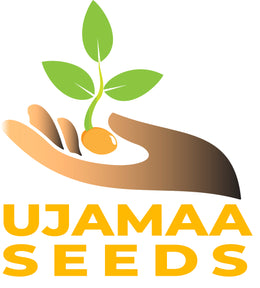Danvers Carrot
Daucus carota
Seeds per pack ~ 150
Germination: 90% (Packed for 2026)
The "Danvers" carrot is a popular variety known for its classic carrot shape, sweet flavor, and adaptability to various soil types. The Danvers carrot was developed in Danvers, Massachusetts, in the late 19th century. It was bred for its ability to thrive in the rocky, heavy soil of the area, which was not ideal for the longer types of carrots prevalent at the time.
Danvers carrots are typically conical, with a well-tapered shape that ends in a blunt point. They are medium-length carrots, usually around 6 to 8 inches long when mature. They have a deep orange color throughout, from their skin to their core. The flesh is crisp and firm with a smooth skin. Danvers carrots are known for their sweet and slightly earthy flavor, making them a favorite for both raw and cooked applications.
One of the key advantages of Danvers carrots is their adaptability to a variety of soil types, including heavier and clay-rich soils, where longer carrot varieties might struggle. They are typically planted in the spring and can be harvested throughout the summer and into the fall, depending on the local climate and planting time. Danvers carrots are versatile in the kitchen. They can be eaten raw, sliced into salads, or used as a crunchy snack. They also hold up well to cooking and can be roasted, boiled, steamed, or included in soups and stews. Like other carrots, the Danvers variety is high in beta-carotene, which the body converts into vitamin A. They are also a good source of fiber, vitamin K, and antioxidants.
The Danvers carrot is a hardy and reliable variety that has stood the test of time, remaining popular among home gardeners and commercial growers alike for its flavor, adaptability, and nutritional value.




